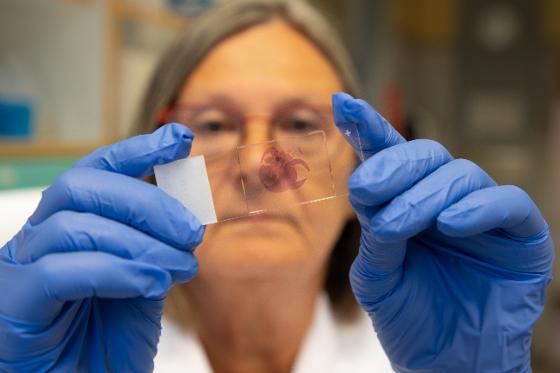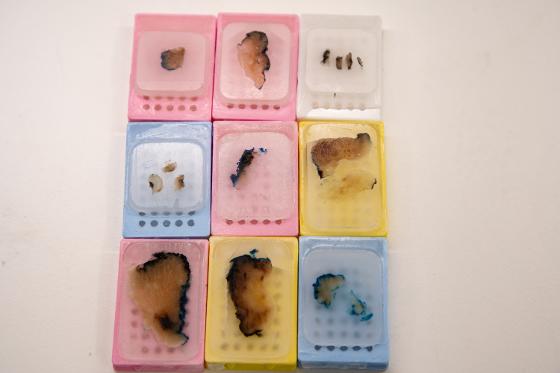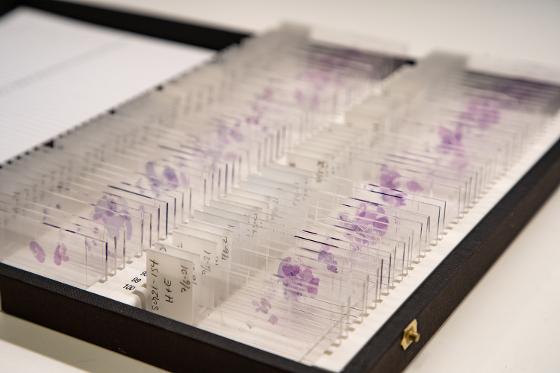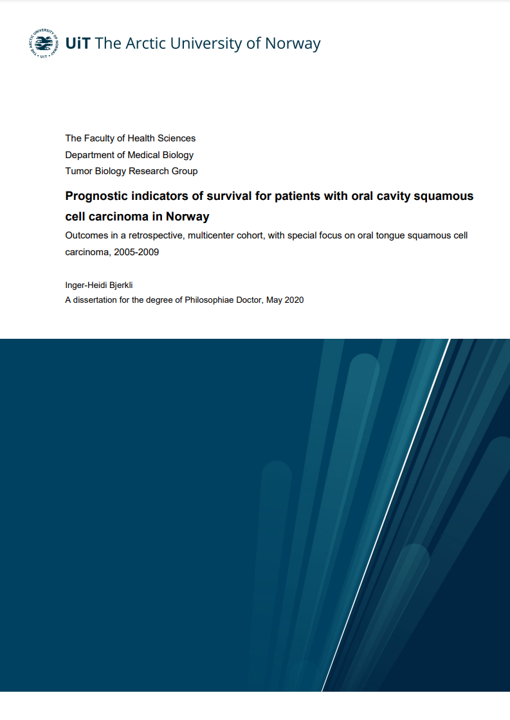NOROC
Every year almost 200 persons are diagnosed with oral cancer in Norway, and the number is increasing. The prognosis is poor with a 5-year survival rate of about 50%. The standard treatment is surgery, often combined with radiotherapy. The treatment often causes permanent side effects such as dry mouth, dental health problems, eating and speech problems, trismus, and dysphagia. The choice of treatment is mainly based on the size of the tumor as well as presence and extent of metastasis according to the TNM classification. However, there are large individual differences in response to treatment. Since the TNM system does not consider the heterogeneity in the biological properties of tumors, treatment choices that are based on the TNM classification cause over-treatment of some patients whereas others will receive less extensive treatment than they could benefit from. Biomarkers that can reflect the biological variations between the tumors have therefore been searched for a long time, but so far there are no such validated biomarkers.


Foto: Jørn Berger-Nyvoll/UiT and Kjersti Sellæg/UiT
The Norwegian Oral Cancer Study (NOROC) is a collaboration between UiT, UNN, UiO, OUS, UiB, HUS and St. Olavs Hospital. The study includes approximately 600 patients with oral cancer, of whom we have detailed clinical information and tumor tissue available for analysis. One of the main goals is to find a panel of biomarkers that can be used as an addition to the TNM system to determine what kind of treatment the individual patient will benefit most from. This may both reduce treatment-related side effects and increase the chance of survival.

.png)
Foto: Jørn Berger-Nyvoll/UiT and Ruth Schwienbacher/UiT
In various sub-projects we search for biomarkers by various methods including immunohistochemistry, MiRNA-sequencing, Nanostring technology and proteomics.
Publications
 |
Wirsing, A.M., Bjerkli, I.H., Steigen, S.E., Rikardsen, O., Magnussen, S.N., Hegge, B., Seppola, M., Uhlin-Hansen, L & Hadler-Olsen, E. (2021) Validation of Selected Head and Neck Cancer Prognostic Markers from the Pathology Atlas in an Oral Tongue Cancer Cohort Cancers 13 (10), 2387. |
 |
Bjerkli, I.H., Jetlund, O., Karevold, G., Karlsdóttir, Á., Jaatun, E., Uhlin-Hansen, L., Rikardsen, O.G., Hadler-Olsen, E. & Steigen, S.E. (2020) Characteristics and prognosis of primary treatment-naïve oral cavity squamous cell carcinoma in Norway, a descriptive retrospective study PLoS ONE 15(1): e0227738 |
 |
Bjerkli, I.H., Laurvik, H., Nginamau, E.S., Søland, T.M, Costea, D., Hov, H., Uhlin-Hansen, L., Hadler-Olsen, E. & Steigen, S.E. (2020) Tumor budding score predicts lymph node status in oral tongue squamous cell carcinoma and should be included in the pathology report PLoS ONE 15(9): e0239783 |
 |
Bjerkli, I.H., Hadler-Olsen, E., Nginamau, E.S., Laurvik, H., Søland, T.M., Costea, D.E., Uhlin-Hansen, L. & Steigen, S.E. (2020) A combined histo-score based on tumor differentiation and lymphocytic infiltrate is a robust prognostic marker for mobile tongue cancer Virhows Archiv 477, 865-872. |
Completed PhDs
 |
Inger-Heidi Bjerkli 2020 Prognostic indicators of survival for patients with oral cavity squamous cell carcinoma in Norway. Outcomes in a retrospective, multicenter cohort, with special focus on oral tongue squamous cell carcinoma Link to doctoral thesis: https://munin.uit.no/handle/10037/19390 |

Foto: Jørn Berger-Nyvoll/UiT
Contact person: Sonja Eriksson Steigen